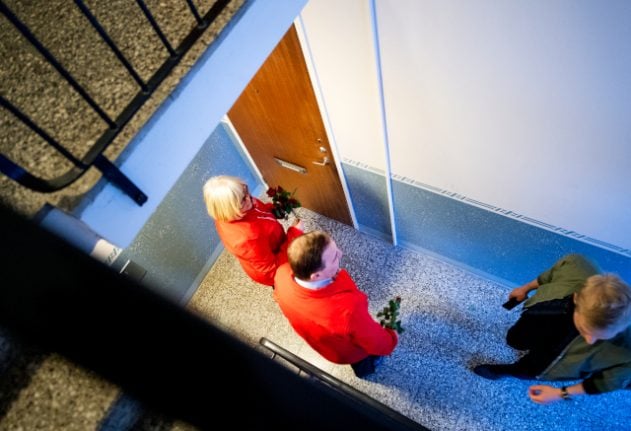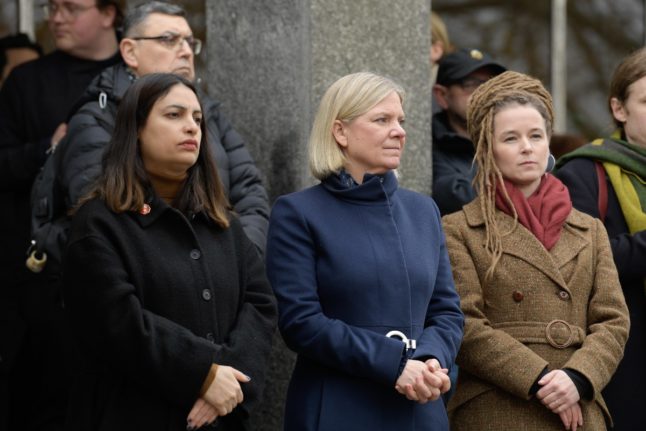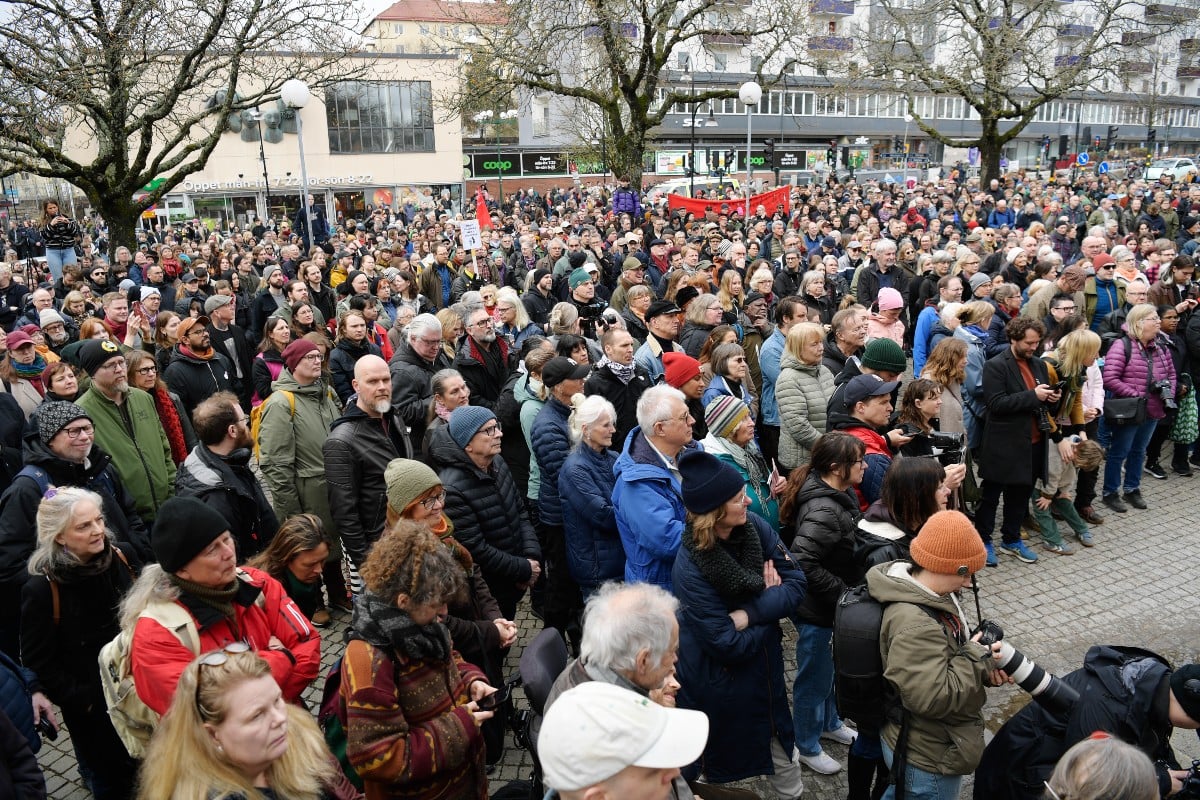In September's general election, votes cast by 145 people in the municipality were not included in the count after the bag containing them was delivered late, as The Local reported at the time.
The result of the municipal election was then appealed to the Swedish Election Review Board, which in February decided to call a re-election in Falun, taking place on Sunday, April 7th. Only the municipal election had to be re-done, since the board decided that the missing 145 votes would not have affected Sweden's parliamentary election nor the Dalarna regional election, all of which took place on the same day.
The vote was seen as the first big test for the political parties after the so-called January Deal (januariavtalet in Swedish – in which the Centre and Liberal parties agreed to allow their former centre-left rivals, the Social Democrats and Green Party, to govern in exchange for some influence on key policy areas) and even Prime Minister Stefan Löfven came to the town to campaign.
READ ALSO:
- We 'kept out' right-wing extremism with election outcome: Swedish PM
- First party leader debate reveals Sweden's new divisions
- What does Sweden's government deal mean for internationals?
But interest in the new election turned out to be comparatively low in Falun. When polling stations closed on Sunday evening, 59.9 percent of eligible voters had cast their ballot according to preliminary figures from the Swedish Election Authority, compared to 87 percent in the September vote.
“Turnout is traditionally lower when it's a re-election. The government formation debacle last autumn has also made people annoyed and fed up with this,” Håkan Hammar, chair of the local election board, told news agency TT, referring to Sweden's three months of government negotiations after the September 9th parliamentary election left the country divided.
Could Falun now be in for another period of post-election haggling? Since the September vote, the centre-right Centre Party, Moderates, Liberals, Christian Democrats and the Falu Party have been in power with the backing of the Left Party, and no bloc got its own majority in Sunday's vote either.
After 36 of 37 districts had been counted, the preliminary result on Monday morning saw the Left Party climb from 9.0 to 10.8 percent of the vote and get another two seats in the local parliament. The Centre Party and the Christian Democrats both claimed one more seat each, with the former increasing its support from 14.8 to 17.0 percent and the latter from 4.1 to 5.5 percent.
The Moderates meanwhile lost two seats and the Liberals and Falu Party one seat each, while the Social Democrats, Green Party and Sweden Democrats all remained at the same number of seats.
This means that although support has shifted within the current coalitions, the ruling alliance has in total held onto the same number of seats.
FOR MEMBERS: Who's who in Sweden's new government?
Sweden rarely has only one election taking place at a time, since elections at the parliamentary, regional, and local levels usually happen on the same day, partly in order to ensure high voter turnout.
And re-elections are rare in Sweden, with the most recent example apart from Falun taking place in Örebro eight years ago. Unlike in many other countries, Sweden does not carry out by-elections if an elected representative resigns, dies, or is otherwise prevented from carrying out their role.
But the Falun re-election was not without its stumbling blocks. The Liberal Party ordered 10,000 flyers ahead of Sunday's vote, and instead received 2,500 menus for a Dutch pizzeria after an apparent mix-up at the printer.
“We have no luck with the post. First there's a re-election because of Postnord and then we get these pizza menus,” Svante Parsjö Tegnér from the Liberals told the local Dalarnas Tidningar.




 Please whitelist us to continue reading.
Please whitelist us to continue reading.
Member comments